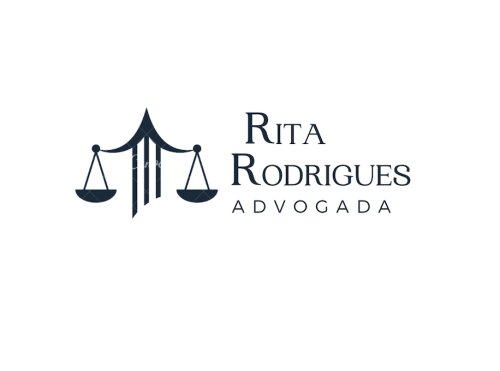Best Family Lawyers in Porto
Share your needs with us, get contacted by law firms.
Free. Takes 2 min.
Free Guide to Hiring a Family Lawyer
List of the best lawyers in Porto, Portugal
About Family Law in Porto, Portugal
Family law in Porto, Portugal is a branch of civil law that governs legal relationships and issues arising within families. This includes marriage, divorce, child custody, parental responsibilities, adoption, division of assets, domestic violence, and alimony. Portuguese family law strives to protect the best interests of children and promote fairness among family members, while ensuring compliance with national legislation outlined in the Portuguese Civil Code and relevant family law statutes. If you are living in Porto or planning to move there, understanding family law can help protect your rights and guide your decisions during important life events.
Why You May Need a Lawyer
Family law matters are often emotionally charged and legally complex. People in Porto may seek the help of a family lawyer for a variety of reasons, such as:
- Divorce or legal separation proceedings
- Negotiating marital property and the division of assets
- Child custody and visitation arrangements
- Establishing child or spousal support (alimony)
- Domestic violence protection orders
- Adoption process guidance
- Parentage and paternal recognition disputes
- Drafting and enforcing prenuptial or postnuptial agreements
- International family law matters, including cross-border custody disputes
A lawyer specializing in family law in Porto can offer invaluable support by clarifying your rights, explaining the legal process, negotiating on your behalf, and advocating for the best outcome.
Local Laws Overview
Family law in Porto is governed by national Portuguese legislation, but local courts and authorities handle the legal procedures. Key aspects include:
- Marriage and Partnerships: Portugal recognizes both civil and religious marriages, as well as de facto unions (união de facto) for couples living together for more than two years.
- Divorce: Divorce can be by mutual consent or through litigation. Property and asset division is typically based on the marital property regime chosen at marriage.
- Parental Responsibilities: The law emphasizes the best interests of the child. Shared custody is common, but the court considers many factors before deciding arrangements.
- Child Support and Alimony: Both parents must contribute to child support. Spousal maintenance may also be ordered, depending on financial disparities.
- Adoption: The process is regulated and requires approval by Portuguese authorities, with the objective of ensuring the welfare of the child.
- Domestic Violence: Portugal has robust protections against domestic violence, including emergency restraining orders and legal action against offenders.
- Inheritance: Inheritance law, often relevant in family situations, is regulated by the Civil Code, with forced heirship provisions for descendants and spouses.
Frequently Asked Questions
What documents are needed to file for divorce in Porto?
You will generally need your marriage certificate, identification documents, proof of residency, and agreements regarding children and assets if seeking divorce by mutual consent.
Can foreigners get married in Porto?
Yes, foreign nationals can marry in Porto. Some additional documentation may be required, such as a certificate of no impediment from your home country.
How is child custody decided in Portugal?
Child custody is based on the best interests of the child, assessing living conditions, the parents' abilities, and the child's needs. Courts often favor shared custody, but may decide otherwise if circumstances require.
What is the process for legal adoption in Porto?
Adoption involves a thorough assessment by social services, background checks, court proceedings, and approval by relevant authorities to ensure the child's welfare.
Is prenuptial agreement enforceable in Portugal?
Yes, prenuptial agreements are recognized when legally drafted before marriage. They must be notarized and comply with Portuguese legal standards.
What protection is there against domestic violence?
Victims can seek restraining orders, report incidents to local law enforcement, and access victim support services. Courts may order immediate protective measures.
How is property divided after a divorce?
Property division depends on the marital regime selected at the time of marriage. Common regimes are joint property and separate property, and division is settled according to these rules.
Do I need to attend court for a mutual divorce?
If both parties agree, the process can often be managed by a notary and may not require court attendance. Disputed cases do require court proceedings.
Is same-sex marriage legal in Porto?
Yes, same-sex marriage has been legal in Portugal since 2010, and all related family law rights and protections apply equally.
Who is entitled to alimony or spousal support?
Alimony or spousal support may be granted to ensure financial balance post-divorce. It is assessed based on the economic status of each spouse and duration of the marriage.
Additional Resources
If you are seeking further information or need assistance, consider the following resources:
- Portuguese Bar Association (Ordem dos Advogados)
- Porto District Family and Minors Court (Tribunal de Família e Menores do Porto)
- Public Legal Aid Offices (Gabinetes de Consulta Jurídica)
- Commission for Citizenship and Gender Equality (Comissão para a Cidadania e a Igualdade de Género) - assistance in domestic violence cases
- Portuguese Institute for Child Support (Instituto de Apoio à Criança)
Next Steps
If you believe you need legal assistance with a family law issue in Porto, consider these steps:
- Gather all relevant documents, such as marriage certificates, birth certificates, proof of income, and correspondence related to your case.
- List your main questions or concerns to clarify during your consultation.
- Contact a lawyer specializing in family law in Porto, or approach the local bar association for a referral.
- If you cannot afford private legal services, inquire about public legal aid or free consultation offices in Porto.
- Follow your lawyer’s advice and keep clear records of all proceedings and communications.
Legal processes in family matters can feel overwhelming, but with the right guidance and local support, you can protect your interests and make informed decisions.
Lawzana helps you find the best lawyers and law firms in Porto through a curated and pre-screened list of qualified legal professionals. Our platform offers rankings and detailed profiles of attorneys and law firms, allowing you to compare based on practice areas, including Family, experience, and client feedback.
Each profile includes a description of the firm's areas of practice, client reviews, team members and partners, year of establishment, spoken languages, office locations, contact information, social media presence, and any published articles or resources. Most firms on our platform speak English and are experienced in both local and international legal matters.
Get a quote from top-rated law firms in Porto, Portugal — quickly, securely, and without unnecessary hassle.
Disclaimer:
The information provided on this page is for general informational purposes only and does not constitute legal advice. While we strive to ensure the accuracy and relevance of the content, legal information may change over time, and interpretations of the law can vary. You should always consult with a qualified legal professional for advice specific to your situation.
We disclaim all liability for actions taken or not taken based on the content of this page. If you believe any information is incorrect or outdated, please contact us, and we will review and update it where appropriate.
Browse family law firms by service in Porto, Portugal
Porto, Portugal Attorneys in related practice areas.













